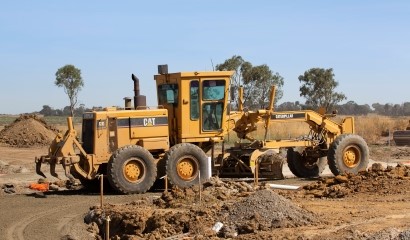China’s space economy flies high with record investment surge – Dealspeak APAC
Funding for China’s commercial space ventures is rocketing, with state players stepping up their game as key financial backers of national champions and start-ups in an effort to help the country close its technology gap with the US.
China saw 24 deals worth USD 2.17bn in 2024 – its highest level on Mergermarket record, up 3.1x in value and more than doubling the number of transactions from the previous year. This accounted for over 88% of total M&A volume in the sector across Asia-Pacific. Almost 40% of private-equity (PE) and venture capital (VC) transactions relating to APAC’s space economy materialized in China, according to AVCJ data.
The role of government-backed investment in commercial space ventures has climbed to 54% in 2024 from 20% in 2018, according to DeepTech Asia. Professor Quentin Parker, a director at the University of Hong Kong’s Lab for Space Research, says state-led investment might reduce the misallocation of capital and advance deep-tech projects overlooked by private funds.
“Private investors want to see quick returns and might not be willing to fund areas where no immediate solutions are available”, explains Parker. “State-owned VC, with a longer and more realistic investment timeframe, could help address this issue.”
Funding needs for very pressing issues such as removing satellite and rockets debris from the low-earth orbit (LEO) remain unmet. Parker and other stakeholders submitted a series of proposals to bolster the space sector in Hong Kong, including a more active role of government funds such as the Hong Kong Investment Corporation (HKIC).
Rainmakers in China’s space sector: investment and exit strategies
China lacks space-focused funds, unlike the US, but it can rely on a vast base of seasoned investors in the field. These include government-backed funds such as deep-tech-focused CAS Star and Addor Capital, as well as Shenzhen Capital Group, a generalist VC; high-profile investors like Matrix China and Hongshan; and smaller players such as Essential Capital and Hongfu Investments, among others.
The line between PE and VC investment in the sector is blurred, with cases of PE funds investing in early-stage funding rounds. Foreign investment is rare, with the notable exception of Abu Dhabi state fund ADIA’s funding of Chinese rocket manufacturer Ming Kong in 2023.
Ron Chiong, a venture capitalist who is planning to raise a space-focused fund in Singapore in 3Q25, envisions significant cross-border investment opportunities between China and Arab, ASEAN and African nations. As a private investor, Chiong says he focuses on projects with a Technology Readiness Level (TRL) of 6 or higher.
Geopolitical tensions and increasingly tight US restrictions pose challenges to international co-operation, but they can be overcome, according to Parker, who adds that Hong Kong could play a key role as a financial, technology and academic hub for BRICS countries.
IPOs offered exits for VCs investing in firms such as satellite data companies Piesat and Geovis. Stock exchanges in Hong Kong, Shanghai and Shenzhen are well-positioned as listing venues, but space companies remain relatively unknown to investors, says Chiong. Separately, Pu Binyan, executive director at Costone Capital, calls for clearer listing policies and standards for space companies, according to a Chinese media report.
Last year, high-precision navigation satellite manufacturer Teemsun went public in Shenzhen, but the highly anticipated IPO of Chang Guang Satellite was halted. Current IPO hopefuls include artificial intelligence (Al) satellite internet tech firm ADA Space, which is eyeing a listing in Hong Kong, and CAS Space, which is mulling an IPO in Shanghai.
Space companies ready for lift off
Chinese experts are calling for a greater role of private space companies in the sector to accelerate the commercialization of space technologies, advocating a relaxation in market restrictions and the establishment of more vibrant public-private partnerships such as those in the US. The China National Space Administration (CNSA) is in the process of drafting new favorable policies.
China has been steadily opening up the sector since 2015, according to Blaine Curcio, founder of Orbital Gateway Consulting. Satellite internet was included under the government’s new infrastructure plan for the first time in 2020, a necessary step to fuel demand for carrier rockets. Three years later, guidelines from the Ministry of Industry and Information Technology (MIIT) broadened investment opportunities in telecommunications and satellite internet for private firms.
Rocket and satellite manufacturing, as well as satellite communication services, are the dominant space tech segments in China. The largest fundraisers among rocket manufacturers include Landspace, SpacePioneer, Galactic Energy, i-Space, Expace, OrienSpace, Deep Blue Aerospace and Ming Kong. Satellite makers such as Chang Guang, MinoSpace, ADA Space, Genesat and Commsat have also been a major magnet for investment.
However, the top fundraiser in China – exceeding USD 900m so far – is SpaceSail, a satellite communication services provider that has been grabbing the headlines as one of the most credible competitors to Elon Musk’s Starlink. Another firm attracting substantial funds is Emposat, a provider of satellite ground station services.
Dealmaking in satellite communication services remains strong. Precision location service provider Qianxun Spatial Intelligence secured more than CNY 1bn in a Series B round in April. However, rocket manufacturers are at the forefront of M&A and fundraising activity.
Notable deals include the sale of an 11% stake in Landscape Technology by Country Garden for CNY 1.3bn (USD 178m) in April, and a new funding round worth CNY 500m (USD 69m) secured by private rocket launch start-up Deep Blue Aerospace. Meanwhile, OrienSpace, a commercial satellite launcher and rocket engine supplier, is seeking to raise CNY 600m in a Series C round.
China commercial space top five deals in 2024
| Announced date | Target | Acquiror | Deal value (USDm) |
|---|---|---|---|
| 15-Jan-24 | Shanghai Spacecom Satellite Technology (26.5%) | Shanghai Alliance Investment Shanghai Guosheng Capital Management Guotai Junan Securities CAS Star Venture Incubator (Zhongke Chuangxing) Asiainfo Security Technologies Beijing Xinding Ruihui Capital Management Gaoyuan Capital Shanghai SAIC Hengxu Investment Management Haitong Innovation Private Equity Fund Management Shanghai Lingang Kechuang Investment Management CDB Investment Fund Management |
937 |
| 06-Jun-24 | Beijing Space Pioneer Technology (Undisclosed) | Wuxi Industry Development Group Guoyu Capital Management Shanghai Deyue Investment SDIC Taikang Trust Hongfu Assets Suzhou Asset Management Beijing Capital Investment Development CSC Financial Beijing Broad Vision Funds Haitong Leading Capital Management Shanghai Qianzhan Investment Management Ningbo Jundu Private Fund Management Zhongxin Jiantou Investment |
207 |
| 04-Jul-24 | Qianxun Spatial Intelligence (7.7%) | Undisclosed Acquirer | 166 |
| 05-Dec-24 | Shanghai Gesi Aerospace Technology (20.61%) | CDB Investment Fund Management CDB Technology Venture Capital Shanghai Guosheng Capital Management Chengdu Jizhuan Venture Capital Shanghai Lingang New Area Kechuang Industrial Equity Investment Fund Management Shanghai Lingang Shuke Private Equity Fund Management Sharewin Equity Fund Management |
139 |
| 23-Jun-24 | Beijing Minospace Technology (Undisclosed) | Suzhou Industrial Park Yuanhe Chongyuan Equity Investment Fund Management Beijing Broad Vision Funds Beijing Amphora Venture Capital |
138 |
Source: Mergermarket, data correct as at 16-May-25













